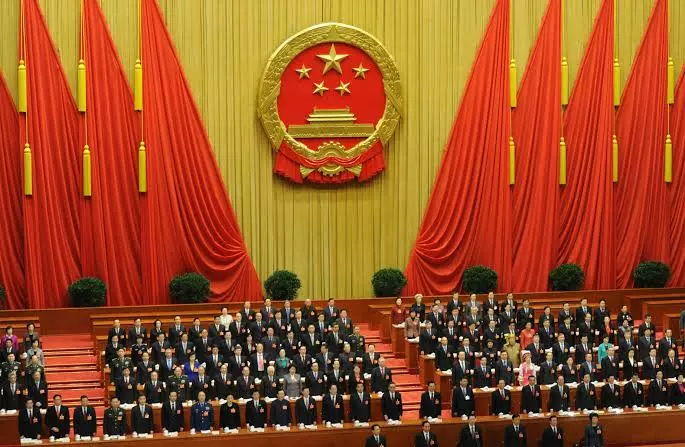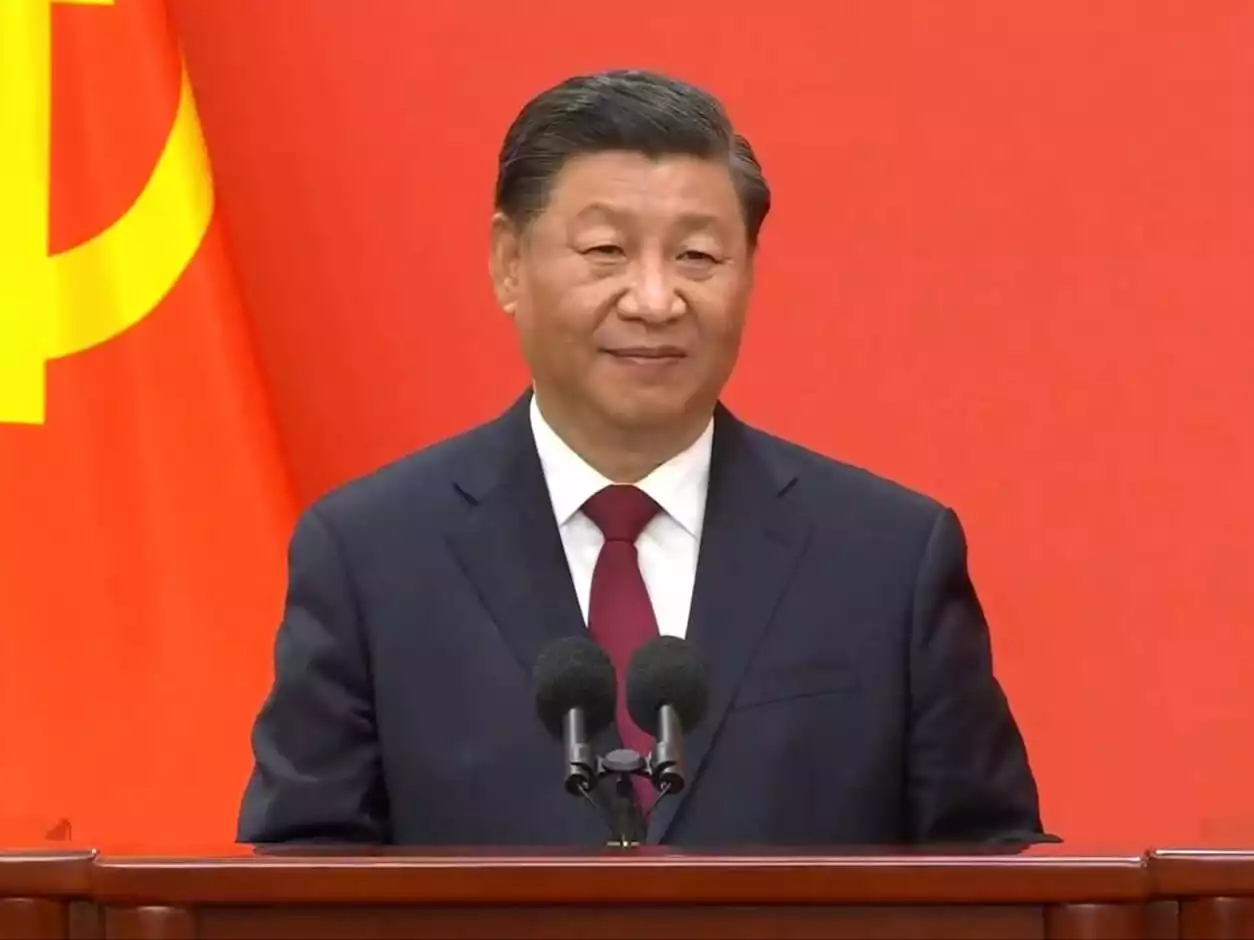… click here to read the previous part
The struggle against the marginalization of Marxism and the reaffirmation of its continuing relevance
One of the main examples of this problem in the ideological realm is the marginalization suffered by Marxism in recent years. Xi Jinping has been paying close attention to this problem, aiming to restore and consolidate the authority and leading role of Marxism as the theoretical basis guiding socialist construction and modernization in China. The problem of marginalization of Marxism is not exaggerated; rather, it is clear to anyone minimally familiar with the internal situation of the country and with the prevailing ideological environment within Chinese society. The Marxist economist Liu Guoguang, analyzing the ideological situation in Chinese theoretical circles - especially in the field of political economy - stated:
“For some time, in the field of economic science research and teaching, the influence of western economics has increased and the guiding position of economic science of Marxism has been weakened and marginalized. In the field of economic theory research and teaching, it seems that nowadays Western economics has become the dominant trend; many students consciously or unconsciously take Western economics as the dominant economic trend in our country. Some people consider Western political economy to be the guiding thought for development and reform in China, some economists openly advocate that Western political economy should be seen as the dominant trend, replacing the guiding position of Marxist economics. Western bourgeois ideology permeates both economic research work and the work of formulating economic decisions. I am very concerned about this phenomenon.” [15]
It is not only in the realm of the study and teaching of economics that Marxism is undergoing a process of marginalization. In the fields of history, philosophy, arts, etc, too, Marxism has been marginalized to various degrees. The Party uses the term "historical nihilism" to describe all sorts of ideas that seek to explain Chinese history, especially the history of the CCP and the construction of socialism, in a distorted way. In the ideological realm, the main target of "historical nihilism" is precisely Marxism, the official state ideology that should theoretically guide and direct all activities and sectors of the country. Historian Gong Yun, a member of the Chinese Academy of Social Scientists, explaining the influence of historical nihilism in today's China, said:
“In the last two decades, although historical nihilism has been criticized in academic circles, the effect of these criticisms has not yet been obvious. The views advocated by historical nihilism have a wide social influence, especially in the new media, some newspapers, and among ordinary people. Historical nihilism has formed a certain social soil and created serious consequences of division and antagonism.” [16]
Since the 18th CCP Congress, several internal ideological campaigns to combat historical nihilism have been carried out, and Xi Jinping himself even analyzed such a phenomenon in one of his speeches. At the February 20, 2021, in a Party history study conference, Xi Jinping said, "We must take a clear stand against historical nihilism, strengthen ideological orientation and theoretical analysis, clarifying the vague and one-sided understandings regarding some historical events in our Party's history." [17]
It is precisely because the situation has reached such a critical level that Xi Jinping pays close attention to the need to consolidate the leading position of Marxism in the ideological field. It is also for this reason that in recent years there have been repeated calls for Party cadres to raise their ideological-political level and deepen their study and knowledge of the classics of Marxism. Speaking specifically about the marginalization of Marxism, Xi Jinping said that:
“Some people consider Marxism outdated, that China currently does not follow Marxism; some people consider Marxism to be just ideological ‘preaching’ without rationality and scientific systematization. In practical work, in some fields Marxism has been marginalized, turned into something empty, symbolic.” [18]
The strengthening of the guiding role of Marxism is fundamental to ensuring that the Party cadres have a correct view of the trends of social development, understand the fundamental differences between capitalism and socialism, and increase their political, ideological and cultural confidence in the political system of socialism with Chinese characteristics. Only by mastering Marxism can one correctly understand the real goals of the Reform and Opening up policy and ensure that it continues to move in the right direction. This is the reason why Xi Jinping insists on the need to consolidate the position of Marxism as the guiding ideology of the Reform and Opening up process, as well as of all the political work undertaken by the Communist Party of China. As Xi Jinping stated:
“At the present time, the environment, target, scope and methods of ideological propaganda are undergoing great changes, but the main task of ideological and propaganda work has not and cannot change. Ideological and propaganda work must consolidate the guiding position of Marxism in the ideological sphere and consolidate a common ideological basis for the united struggle of the entire Party and people.” [19]

Consolidating the guiding role of Marxism, making it increasingly a real material force guiding the process of building socialism in China, is a mandatory condition for the Party to strengthen its leadership and governance capacity, as well as to continue achieving new successes in the process of building socialism with Chinese characteristics.
The existence of capitalist relations of production in the primary stage of socialism and their effects on the ideological sphere
As we stated at the beginning of the article, the restructuring of the property system in China has given rise to capitalist-type relations of production, so they produce a certain type of ideology that corresponds to the character of these relations. Economist Wu Xuangong defends the idea that currently there are “a large number of economic phenomena and problems in China that did not exist in the past and are contrary to the nature and principles of socialism”. Such problems stem from the fact that in present-day China, in addition to the "main contradiction of socialist society, there is also the main contradiction of capitalism". [20]
It is therefore correct for us to analyze what role the ideology produced by these new capitalist relations of production play in the general set of socialism with Chinese characteristics, and how the Party will deal with this contradiction in the medium and long term. The recognition of the contradictions and problems that have appeared in the country in the last 40 years – and their effects in the realm of ideology – reveals a great concern on the part of Chinese Marxist theorists to seek and find the appropriate explanations to correctly solve the problem. To do so, one must keep in mind the basic principle of Marxism that existence determines consciousness, or the economic base determines the superstructure; therefore, it would not be correct to consider that the increased dangers presented by bourgeois liberalization are works of chance, or that they arise magically. They manifest themselves ultimately as ideological representations of new petty-bourgeois and bourgeois social classes that are bound by multiple ties to capitalist private property, and are also the product of the increased ideological infiltration promoted by Western countries, especially the United States and all its ideological apparatus of political and cultural domination, to the extent that there has been a certain loosening of ideological and class education, as well as an advance in the penetration of foreign capital in the country. As Wu Xuangong stated, "The belief in socialism gradually weakened, so that Marxism was marginalized; the emphasis on self-interest, as well as the pursuit of material interests, became a trend." [21]

In the 1990s, Deng Xiaoping and many Party cadres considered the idea of explaining the problem of bourgeois liberalization through the analysis of economic relations to be mistaken, because they saw it as an attempt to put a brake on the advance of reforms. Under those conditions it was not wrong to put the problem in those terms. However, today this problem presents itself in a completely different way than it did in the 1980s and 1990s. At that time a new bourgeoisie had not completely formed, and the problem of class struggle manifested itself basically only as a struggle against the remnants of backward ideologies and elements directly linked to imperialism working to sabotage socialist construction. Today capitalist private property has acquired an infinitely more important position and role than it did in the past, which has resulted in a significant change in the economic and ownership structure in China. This has fundamentally changed the way in which the Chinese working masses relate to the means of production, a fact that poses serious risks to the Party and the very cause of socialism in the country. Without taking into account the influence that the relations of production originating in capitalist private property and the pressure they exert for the reforms as a whole to take the direction of bourgeois liberalization, it is impossible to understand the essence of the problem. This is a question that needs to be observed by all those who wish to make a realistic analysis of the current stage of development of socialism in China. As the economist Liu Guoguang warned:
“Bourgeois liberalization occurs not only in the political field, but also in the economic field. Privatization, liberalization, and marketization; opposition to public ownership, government intervention, and opposition to socialism, these are all things that are all related to the economic field. It is not enough to oppose bourgeois liberalization, politically. To prevent bourgeois liberalization in the economic field is to prevent the economic field from deteriorating. If the economic field deteriorates (is privatized, turned into capitalism), the political field will also deteriorate. This is a basic common principle of Marxism.” [22]
Capitalist private property, even though in the primary stage of socialism it may play a positive role as an accessory element in the development of the socialist economy, ultimately represents the relations of production of a capitalist type, possessing objectives and laws of operation distinct from socialist property in its most varied forms. It is necessary, therefore, to differentiate between what are the positive effects that capitalist private property can create for the development of the productive forces, from what is the ideology it inevitably produces, and the negative effects generated by capitalist relations of production in the most varied domains of social life. It is natural that, as private property increases in importance and influence in the overall economy, its laws start to influence the various levels of Chinese social-economic formation (including influencing and exerting pressure on socialist public property), broadening and expanding its capacity for political, economic and ideological intervention. Therefore, it is not an exaggeration to say that the most serious economic and social problems that exist in China today are the direct result of the intervention of the contradictions produced by the capitalist relations of production.

In view of this inevitability, it is of utmost importance that the Party be very clear that the goal of the Reform and Opening Up is to perfect the development of the socialist system, to promote the development of the productive forces and gradually consolidate and broaden the influence and extension of the public sector of the economy, the sector that represents the socialist relations of production. The existence of private property in China is justified by the relative backwardness of the level of development of the productive forces. With the advance and development of the productive forces, with the advance of modernization, the purpose of the reforms is to adjust the role of the socialist relations of production, expanding the influence and the scope of action of the public ownership of the means of production, gradually putting an end to the tendency that has persisted since the beginning of the Reform and Opening policy, namely, the tendency of much faster increase and development of private property and the gradual decrease of the participation of the state and public sector, creating the economic and material conditions to overcome the primary stage of socialism. Obviously, such changes and adjustments will be accompanied by a sharp ideological struggle, which is also one of the forms in which class struggle manifests itself. Thus, the theories and ideas that seek to present capitalist relations of production as "socialist" or ideas that say that, in the Chinese case, "private property is not synonymous with capitalism", are not correct.
The advance towards a more advanced stage of socialist construction is not yet completely on the agenda (the new era of socialism is situated in the scope of the primary stage of socialism), but it is clear that the problems and contradictions that China is facing today are already quite different from the problems that confronted the country in the preceding decades, something recognized by the 19th Congress of the Communist Party of China, which declared that there is a "new principal contradiction" in the new era of socialism. The old definition, which said that the main contradiction in China was the contradiction between the low level of development of the productive forces and the growing demands of the masses, has given way to a new main contradiction, this being the contradiction between unbalanced and inadequate development and the growing needs of the people for a better life.
Many Marxist intellectuals in China consider that, at the present stage, in order to overcome the negative effects of unbalanced development, the most important mission facing the Communist Party is to struggle to effectively build a harmonious society, to combat the negative effects produced by the expansion of private property, and to regain certain positions lost by the public economy in recent years. For such a major operation, it is more than necessary to strengthen ideological work and prepare public opinion. Objectively, this is a problem that places in opposition two projects of society that correspond to distinct worldviews and class interests. The attacks on Marxism and the tendencies that seek to diminish its role - or even deny it - are evidently expressions of the class interests of those social groups and actors who do not want to advance along the path of socialism. Many of these groups use the banner of reform and openness to justify their reactionary ideas and their opposition to the system of socialism with Chinese characteristics, although they often do this in a veiled way.
References:
[15] Liu Guoguang 刘国光. "Zhongguo shehuizhuyi zhengzhi jingjixue de ruogan wenti 中国社会主义政治经济学的若干问题 [Some problems of the political economy of socialism with Chinese characteristics]," Jinan chubanshe 济南出版社, 2017, pg. 33.
[16] Gong Yun 龚云. "Zai lishi xuwu zhuyi zhong jianchi lishi weiwu zhuyi 在历史虚无主义中坚持历史唯物主义 [Criticizing historical nihilism by persisting in historical materialism]." Accessed at: http://www.wyzxwk.com/Article/yulun/2016/07/367869.html
[17] Xi Jinping 习近平. "Zai dang shu xuexi jiaoyu dongyuan dahui shang de jianghua 在党史学习教育动员大会上的讲话 [Speech at the mobilization and study conference on Party history]," 2021. Acessado em: https://www.ccps.gov.cn/xtt/202103/t20210331_148208.shtml
[18] Xi Jinping 习近平. "Zai zhexue shehui kexue gongzuo zuotan zhong de sikao 在哲学社会科学工作座谈会上的讲话 [Speech at the philosophy and social science workers seminar]," 2016. Acessado em: http://www.xinhuanet.com/politics/2016-05/18/c_1118891128_2.htm
[19] Xi Jinping 习近平. "Ba xuanchuan sixiang gongzuo zuo de geng hao 把宣传思想工作做得更好 [Do ideological and propaganda work better]." Lun jianchi dang yiqie gongzuo de lingdao 论坚持党一切工作的领导, Zhongyang wenxian chuban she 中央文献出版社, 2019, pg. 23.
[20] Wu Xuangong 吴宣恭. "Yunyong lishi weiwuzhuyi jianshe zhongguo thesis shehui zhuyi zhengzhi jingji xue 运用历史唯物主义建设中国特色社会主义政治经济学 [Use historical materialism to build the political economy of socialism with Chinese characteristics]." Fujian shifan daxue xuebao (zhexue shehui kexue ban) 福建师范大学学报 ( 哲学社会科学版), 2017.
[21] Ibid.
[22] Liu Guoguang 刘国光. "Zhongguo shehuizhuyi zhengzhi jingjixue de ruogan wenti 中国社会主义政治经济学的若干问题 [Some problems of the political economy of socialism with Chinese characteristics]," Jinan chubanshe 济南出版社, 2017, pg. 33.






